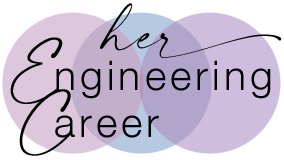Episode Transcript
You’re maintaining high standards as an engineer. You apply rigor to your work. And attention to detail. Tenacity and persistence drive you to follow through on your projects.
The precision and rigor of the engineering discipline is part of what drew you to this field. It’s also a place where perfection can thrive.
It’s no mystery that engineers become obsessed with perfection. And you pay the price in time and energy.
Today we’re exploring how perfection is harmful for women engineers. And tips on how you can change your perfection habits.
Why Engineers are Drawn to Perfection
There’s something about perfection that’s beautiful. If something is not perfect it feels unfinished. You’re unsettled about it. Once it’s perfect it’s complete. And that completion is very satisfying to you. Perfection is beautiful and compelling.
But perfection is not a good thing. It’s addictive and harmful. And if you’re in the habit, you need to change that.
The good news is that the goal is not perfection. There’s a difference between meeting requirements and reaching perfection. Quite a big difference actually.
Why You and Your Engineering Career Need to Recover from Perfectionism
Perfection is a dangerous affliction. As a minimum it depletes your time and energy. Time and energy you need for other things.
Perfection takes you down rabbit holes. It distracts you from the most important thing. From where your focus should be.
The more you pay attention, the more you’ll realize how much perfectionism sneaks into little everyday tasks.
- An email response that should have taken you 5 minutes extends to 25. Because the wording has to be perfect.
- Drafting a quick outline for a planning meeting ends up taking 2 hours. Because more detail would be better. And you’re here, so you may as well keep working on it until it’s perfect.
- A 3-bullet update to your boss turns into a full page narrative. Because you want her to have a perfect description of all the facts. Even though she’s not asking you for that.
It’s especially hard to break the perfection habit. Because it doesn’t look like a bad habit. You’re making things “better.” You’re adding to. You’re refining and enhancing. Seems like it’s a positive thing.
But perfection will own you. And perfection will keep you from owning your career.
On the flip side letting go of perfection frees up time and energy. It releases you from the strain of striving for impossibility.
Letting go of perfection also:
- brings out authentic you. The one who’s been hiding behind that illusion of perfection.
- helps you be a better delegator. Because you stop expecting perfection
- results in better products. Because it’s better to put your idea out there in a less-than-perfect state. To try it out and get feedback so you can improve it.
4 Tips to Get Out of Perfection Habits and Build New Ones
If you’re a perfectionist you associate yourself with perfection. And you associate your quality engineering workwith reaching perfection. You don’t see any difference between completing a task and perfecting it.
These are the habits you need to break. Here are 4 tips on how to do that:
- Dissociate perfection from you. Make a separation between yourself and perfection.
A conscientious engineer is not the same as a perfectionist. Perfection is not the same as attention to detail or meticulousness or rigor.
The level of detail or meticulousness or rigor is associated with the requirements of the task. Not with you. Not with perfection.
Instead associate yourself with excellence. And your work with high quality and innovation. And see perfection as the unobtainable falsehood that it is.
- Focus on the real goal. Be proactive in tagging tasks that might suck you in timewise or energy-wise. Focus in on what the real goal is and use that as your endpoint.
See that accomplishing that goal is the most important thing. And the rest doesn’t matter. You may have to practice leaving things “unfinished.” Or what feels like unfinished to you.
Learn what it feels like to do the minimum and let the rest go. Also notice what you get back in terms of time and energy.
- Distinguish between the point of completion and perfection. To let go of perfection, recognize that point of distinction between completing the task and perfecting the task.
Pinpoint that moment where you’ve met requirements and where you start to go too far. Discipline yourself to wrap up the task at that point and move on to the next one.
- Set time limits for small tasks. A quick tip to help keep perfectionism at bay is to limit the time you spend on smaller tasks. Once you know the real goal, estimate a reasonable time for the task and set a timer.
Gradually you’ll train yourself to be more efficient and resist the urge to do more work when it’s not required. And you can use this trick on large tasks by breaking them down into multiple smaller tasks.
If you’re having trouble breaking the habits of perfectionism, I can help you through these changes. Sign up for a strategy session with me. It’s an excellent opportunity to talk about your particular situation and come up with a recovery strategy.
As a woman engineer you may feel a compulsion to push toward perfect. It’s part of that need to prove yourself. Part of the “prove-it-again” bias.
But once you break your habits of perfection, you’ll see they aren’t buying you anything. And in fact they’re doing more harm than good. Start changing your habits today.
Get out of the struggle to be perfect. Get back some time and energy to put to better use. You’ll gain more respect as an engineer and leader. And you’ll open the way to advance your career to the next level.
Next time on Her Engineering Career Podcast, I’ll be encouraging you to think big – and bigger – as you envision your engineering career. Join me next time for Episode 90.

